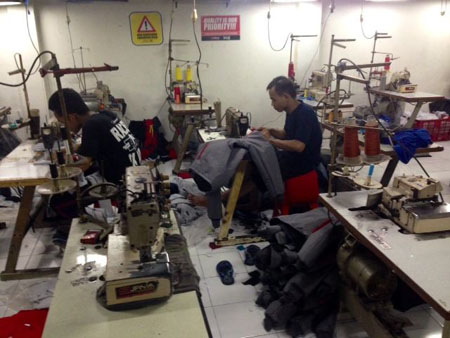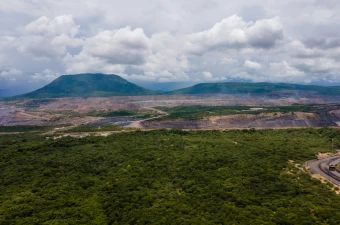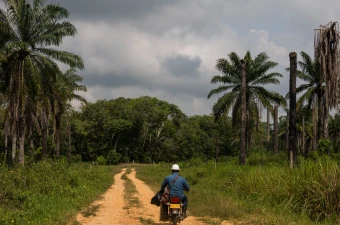Sewing T-shirts or embroidering logos are stages of the garment production process that are not only completed in the big garment factories.

A lot of this work is done in small in-house workshops by outworkers. In Bandung, Indonesia you can find an entire neighbourhood with this type of small scale industry. Such an area is locally known as skoci.
The workers are usually from out of town. In fact, many of them live so far away that commuting from home is not an option. They often live on the property where they work as outworkers instead. Usually, they do not have a fixed income. Their payment is based on piecework.
This makes these workers very vulnerable. It is almost impossible for them to improve their working conditions and invoke their labour rights. All the more reason for CNV, partner organisation SBSI, and trade union SPSI, to try to arrange this in cooperation with the industry.
At the sewing machine in an in-house workshop.
Henk van Beers is director for CNV Vakmensen and experienced in negotiating Sectorwide Collective Agreements in the Netherlands. This type of agreement is unknown in Indonesia, where negotiations must be held separately with every company. Van Beers visited Indonesia in early March to support the outworkers in their struggle for better working conditions.
Step by step towards Collective Agreements for Outworkers
The establishment of a sector organisation is in the works. This is the first step in a process of formalisation. First, the informal companies establish a sector organisation. This organisation will then be registered with DINAS Manpower, who represent the Ministry at the municipal level. This formalises the sector organisation, and indirectly, its members (the outworkers in the in-house workshops).
The next step in this process is to open negotiations for a Collective Agreement for all these small companies. Van Beers is involved in a special and very important process. It is -still- an exception to reach Collective Agreements on labour rights for these vulnerable outworkers.
Publication date 31 03 2015


